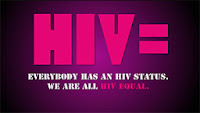Do we see other people as faceless?
What preconceived ideas do we have as to what constitutes a person and what does not?
Google seems to have some ideas about it. Here's that it said when I uploaded my choice of profile photo:
 In their experiment, researchers Lasana Harris and Susan Fiske showed pictures of specific groups of people and measured the response of the mPFC. Here's what they found:
In their experiment, researchers Lasana Harris and Susan Fiske showed pictures of specific groups of people and measured the response of the mPFC. Here's what they found:Images of all other groups besides the homeless activated the mPFC. This suggests that the homeless are not recognized as human relative to other groups. They actually are perceived, at least in this area of the brain, more like objects, such as tables.
You have heard that it was said, ‘Love your neighbor and hate your enemy.’ But I tell you, love your enemies and pray for those who persecute you, that you may be children of your Father in heaven.
Matthew 5:43-45 NIV
"I used to think that the greatest command in the Bible was "You shall love your neighbour as yourself." I was wrong. Only in one place does the Bible ask us to love our neighbour. In more than thirty places it commands us to love the stranger. Don't oppress the stranger because you know what it feels like to be a stranger--you were once strangers in the land of Egypt. It isn't hard to love our neighbours because by and large our neighbours are people like us. What's tough is to love the stranger, the person who isn't like us, who has a different skin colour, or a different faith, or a different background. That's the real challenge. It was in ancient times. It still is today."
Chief Rabbi Sir Jonathan Sacks (quoted on pp 101-102 of Just Hospitality).

A white person goes into the store to get a birthday gift for their niece. Generally speaking, they never have to think about the following:A black person or an aboriginal person goes into a store for the same purpose, and for them, these are often relevant questions!
Will I be able to find a doll of the same race as my niece?
Will the store staff be worried that I'm going to steal things?
Will store security follow me around?
My experience as an outsider within has led me question the rigid clergy line that divides our church communities and increases hierarchy and competition for power in our denomination. At the same time, it has led me to focus in a theology of hospitality that emphasizes the calling of the church as a witness to God's intention to mend the creation by bringing about a world of justice, peace, and integrity of the natural world. There are a lot of "missing persons" in our world today whose situation of poverty, injustice, and suffering makes God weep. These missing persons are not strangers to God, for God already has reached out to care for them. Yet they are strangers in the world who need to know God cares through the witness of a church that practices a ministry of hospitality and justice on their behalf. (p. 18-19)Read an excerpt at Spirituality & Practice.
After living for a few months of 1953
with the K'ashot'ine of Rádeli Ko (Fort Good Hope),
I was teaching them the Ten Commandments.
You know them: love God, honour your parents,
don't kill, don't steal, don't lie,
and don't commit adultery.
I explained:
"It is a sin
to do what we shouldn't do,
or not to do what we should do.
Sins are rated as big or small.
What do you think is the worst sin of all?"
The ten Dene discussed together,
and after a while Radisca explained to me:
"We talked it over, and we all agree:
The worst sin people can make
is to lock their door."
From The Secret by René Fumoleau, (Novalis, 1997) p. 13.
Emphasis added.
 "Committed Christians may respond differently to gay and lesbian Christians. How can we engage those with whom we might disagree and navigate our journey together in a way that nurtures unity, hospitality, humility, and justice?
"Committed Christians may respond differently to gay and lesbian Christians. How can we engage those with whom we might disagree and navigate our journey together in a way that nurtures unity, hospitality, humility, and justice?In generous spaciousness, I choose to listen deeply to the other, expecting to encounter God in our conversation. With generous spaciousness, I am seeking to experience a sense of community with those with whom I disagree. That means I intentionally contribute to an ethos of mutual respect. True respect doesn’t whitewash differences as if they don’t matter. But in generous spaciousness I allow myself to wonder if there might be more for me to learn and discover as I build relationship with the one who sees things differently than I do.